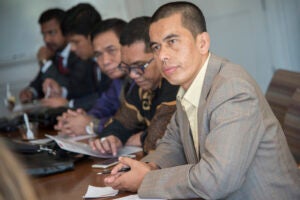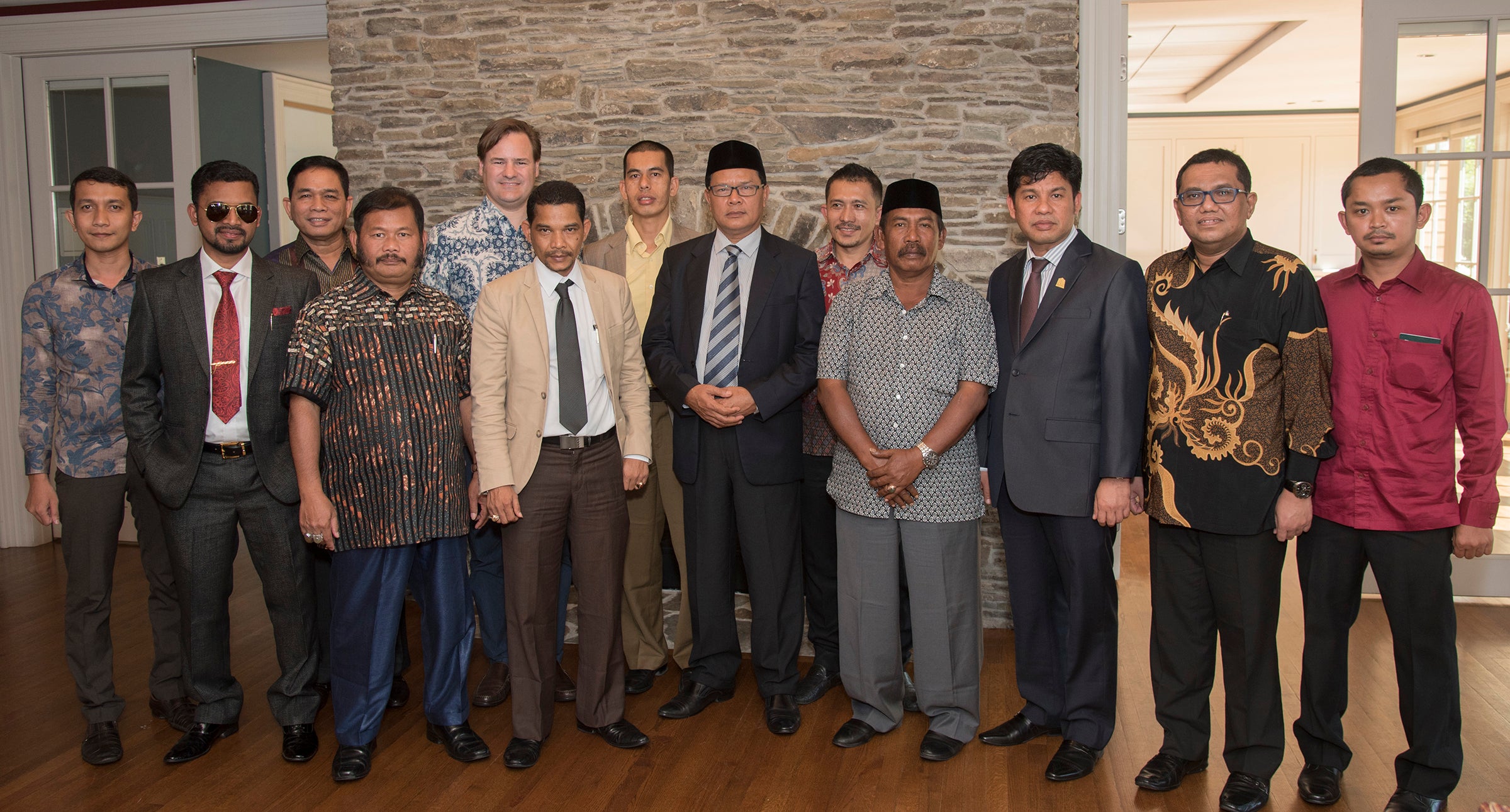KINGSTON, R.I., July 28, 2016—Gun control, Donald Trump, a free press and how state laws are made came up during a lively gathering today with Indonesian officials visiting the University of Rhode Island.
Members of parliament from the country’s Aceh Province were on the Kingston campus for the day to learn about American democracy, specifically how local governments operate.
The 15-member delegation peppered State Rep. Carol Hagan McEntee, who represents Narragansett and South Kingstown, with questions about everything from the presidential election to the state budget.
The visit was coordinated by Brook Williams Ross, a 1993 graduate of URI who is founder and managing director of Indonesia Education Partnerships, which supports academic collaborations between Indonesia and the United States.
“The goal of the delegation,’’ said Ross, “is to learn about best practices of state governments at a local level, with URI as a partner.’’
Education officials from Aceh first visited URI in December 2015. URI President David M. Dooley followed up with a trip to Aceh in March, with the goal of developing academic partnerships, particularly for Indonesian graduate students looking to study education, marine affairs, engineering and public administration.
URI has a longstanding relationship with Indonesia. URI helped rebuild Aceh after it was devastated by a tsunami in 2004. For the last three years, students have traveled to the country for J-term courses during the winter break. And in March nursing, pharmacy and physical therapy students spent two weeks in the country to get a firsthand look at its health care system.

URI also is collaborating with the Indonesian Ministry of Marine Affairs and Fisheries to study ocean and fisheries management and related subjects. The partnership is helping to preserve and improve the country’s fisheries, which plays a key role in the economy.
McEntee explained how legislators are elected and how laws are made in Rhode Island. She said that legislators address a range of issues from ethics reform and taxes to school funding and road tolls.
“Democracy works very well in the United States,’’ she said. But, she added, “As you can see we’re going through a very heated presidential race. I’ve never seen one like it before.’’
The questions (and answers) reflected two very different governments. In Aceh, the police force is nationalized. Each community has a police department in this country.
In Aceh, politicians pay journalists to write stories. A free press thrives in the United States. The military and police officers are the only ones legally allowed to carry guns in Indonesia. Guns are prolific in America.
How are laws made in Rhode Island? one man asked.
“We have two bodies—the House and Senate—that have to pass the law, and then the governor signs the bill into law,’’ said McEntee.
Another official asked how McEntee gets elected: “Knock on doors, send out mailings, tell people to ‘Vote for Carol.’ You have to go everywhere.’’
Is there corruption in state government? another asked. Sometimes, said McEntee, but policies and laws are in place to fight malfeasance, including the open meetings law. She said legislative hearings are televised for “the public to see.’’
Later in the day, the delegation attended a class on state government taught by Robert A. Weygand, a former lieutenant governor and congressman who is director of the graduate program in public administration at URI. Weygand is a former vice president of administration and finance at the University.
The Indonesian officials also toured the Statehouse and, earlier in the week, met with representatives at the Indonesian embassy in Washington D.C. They plan to return to Indonesia July 28.

